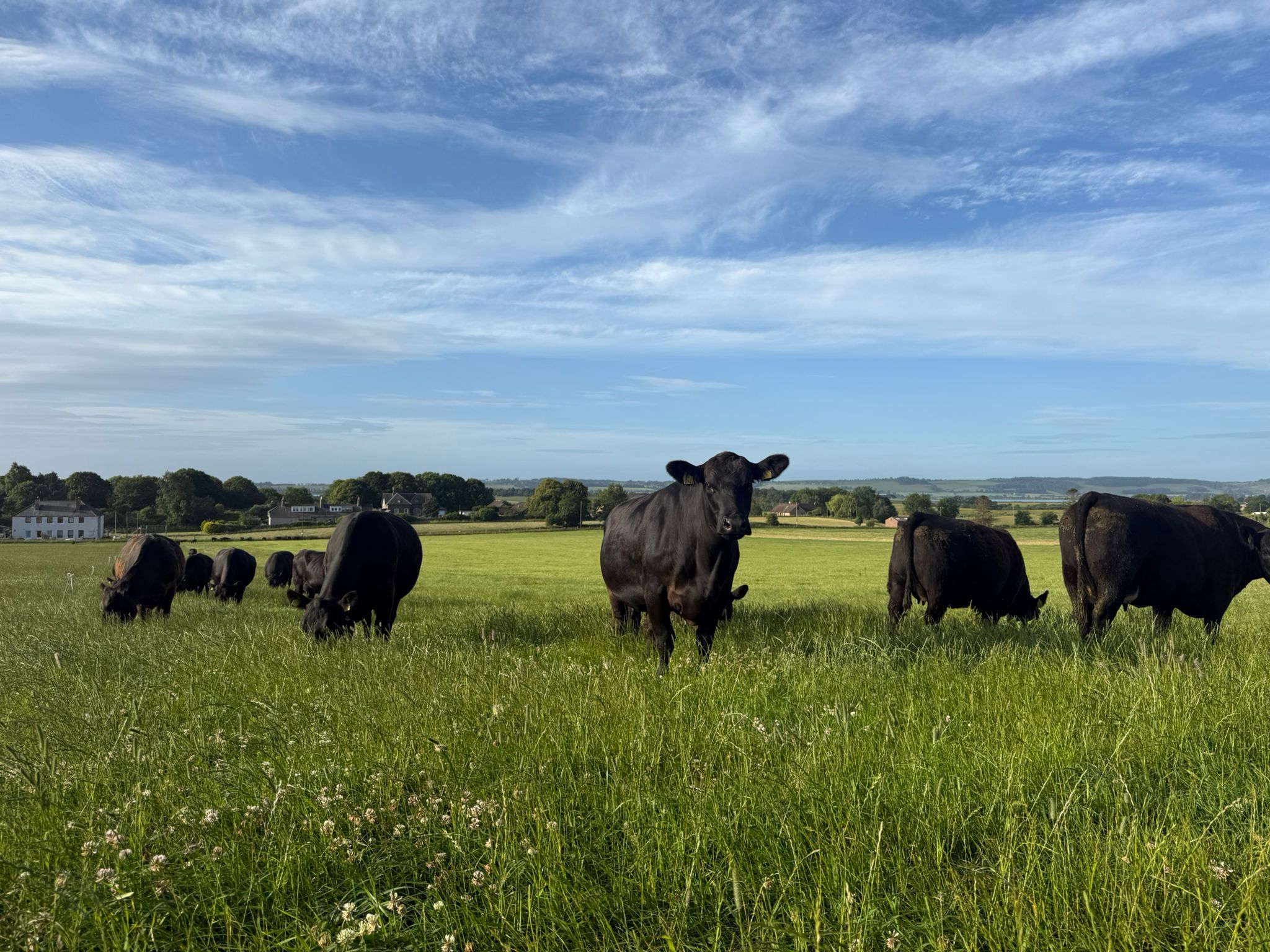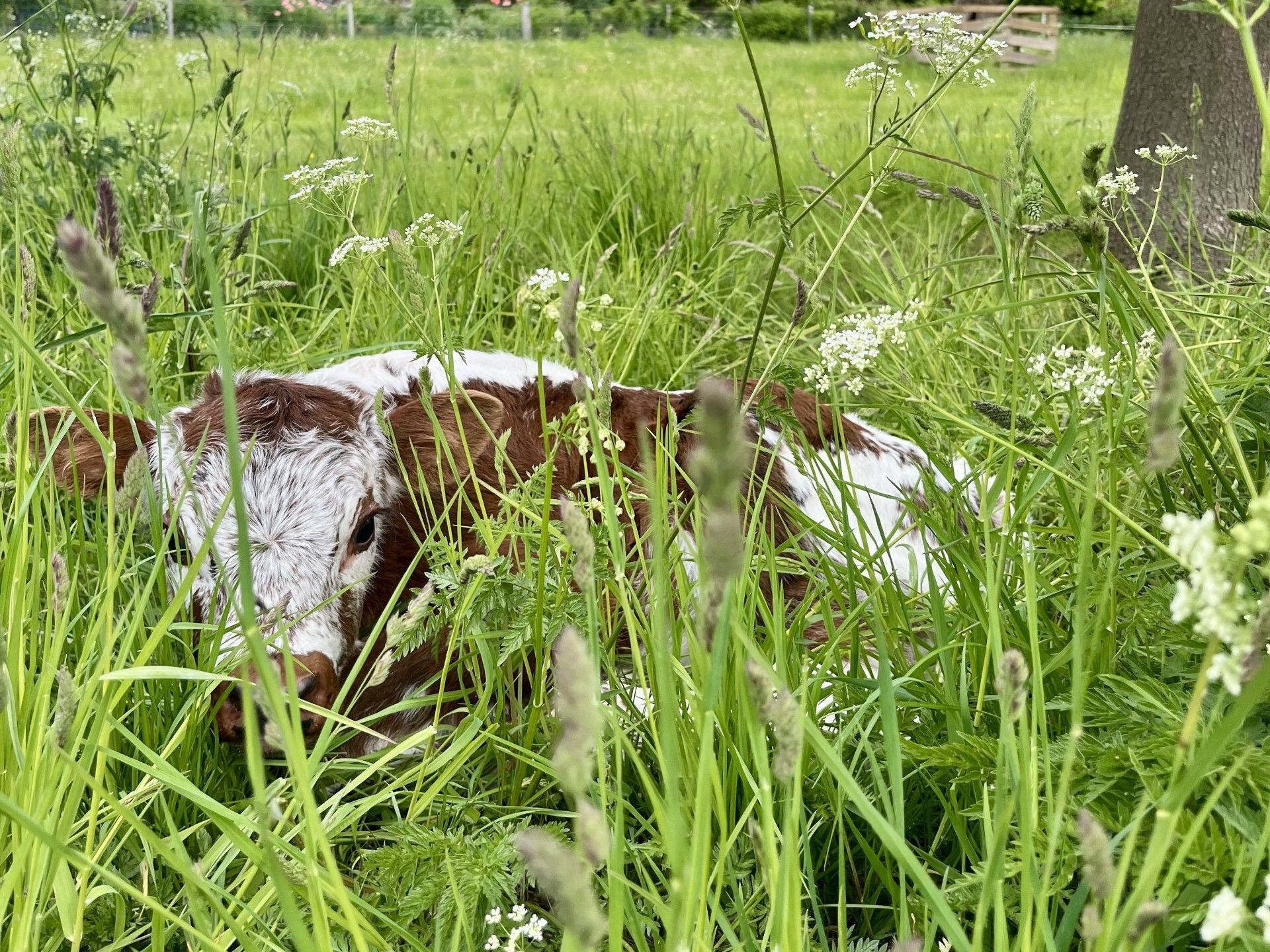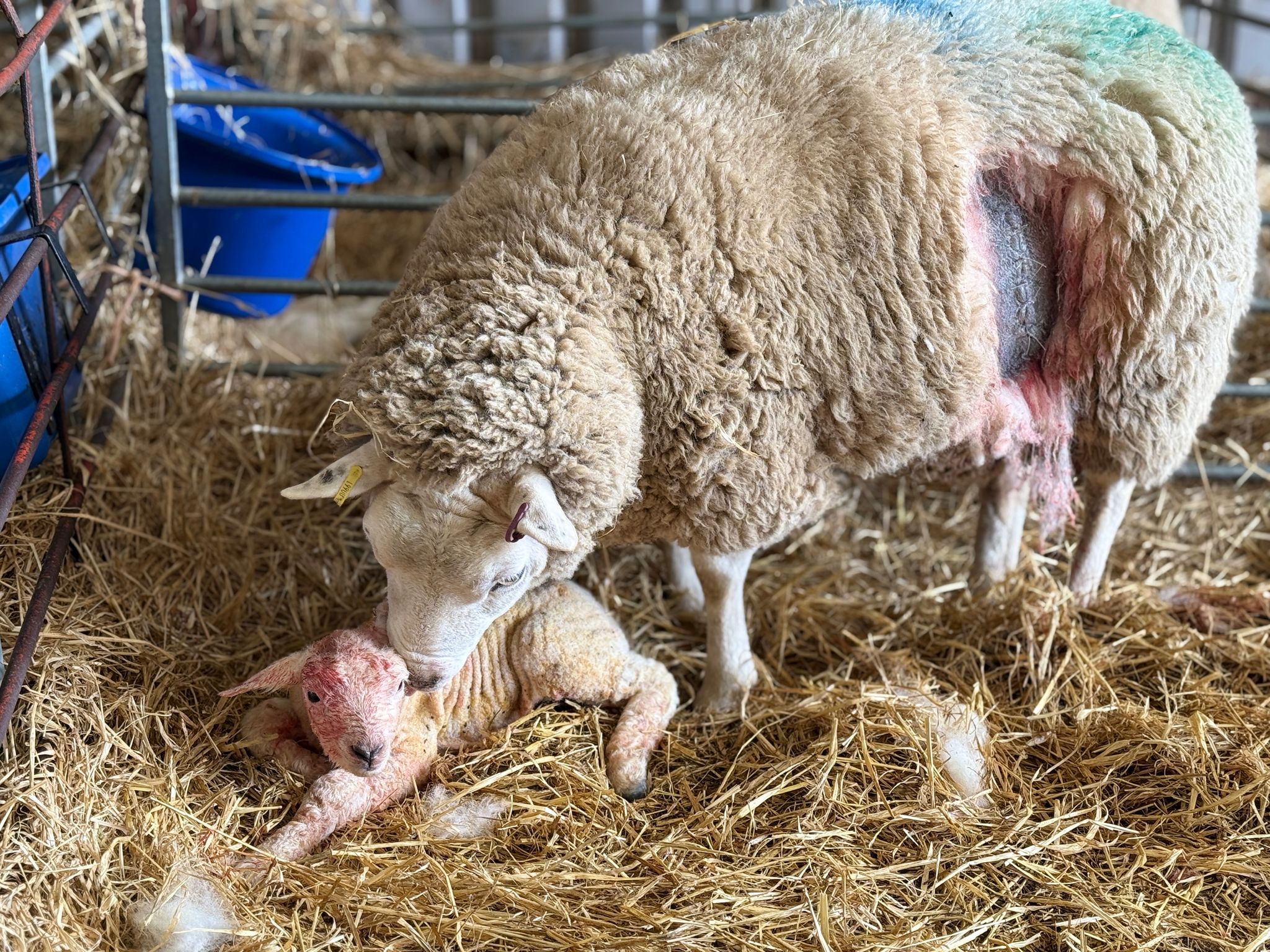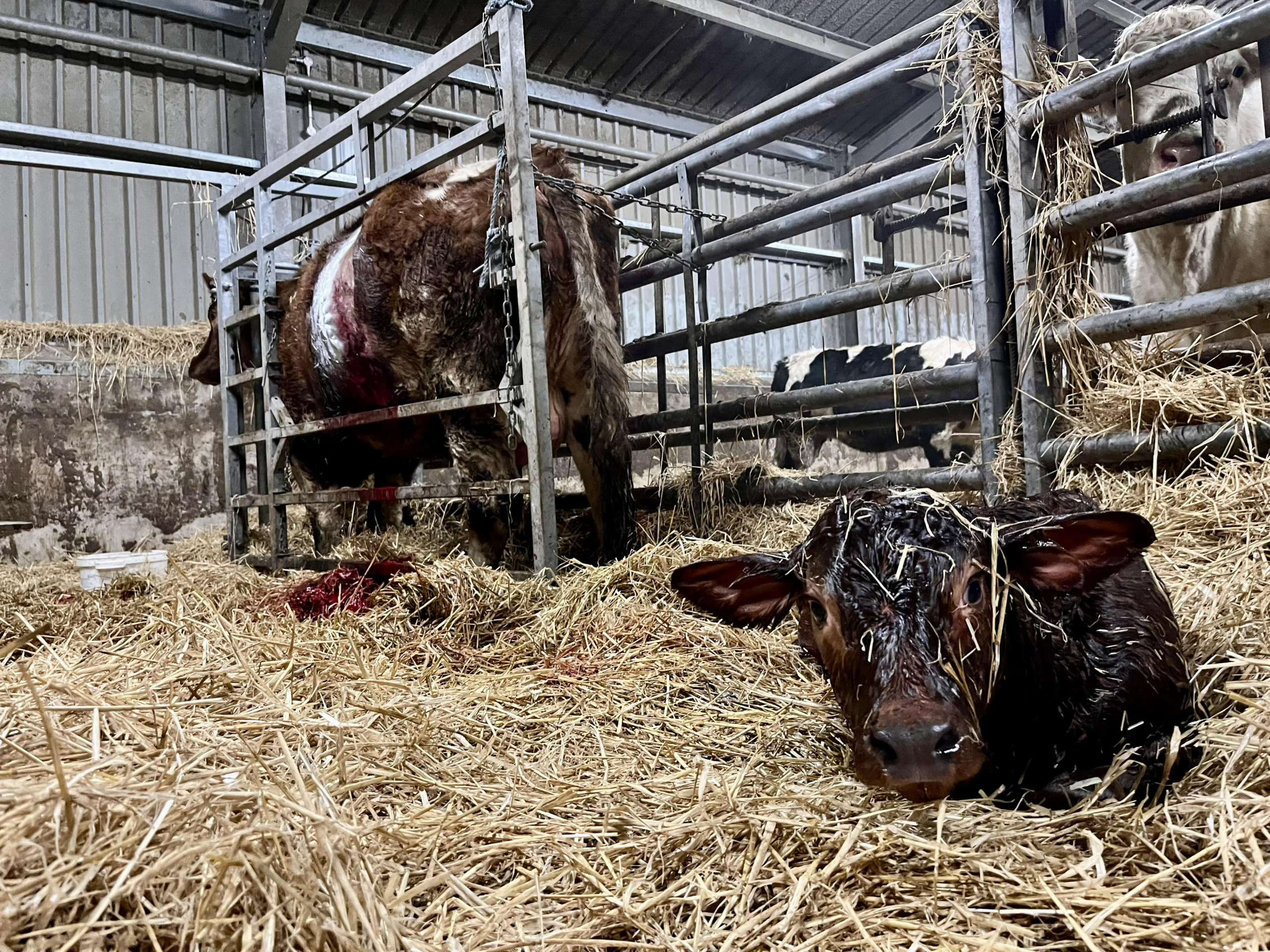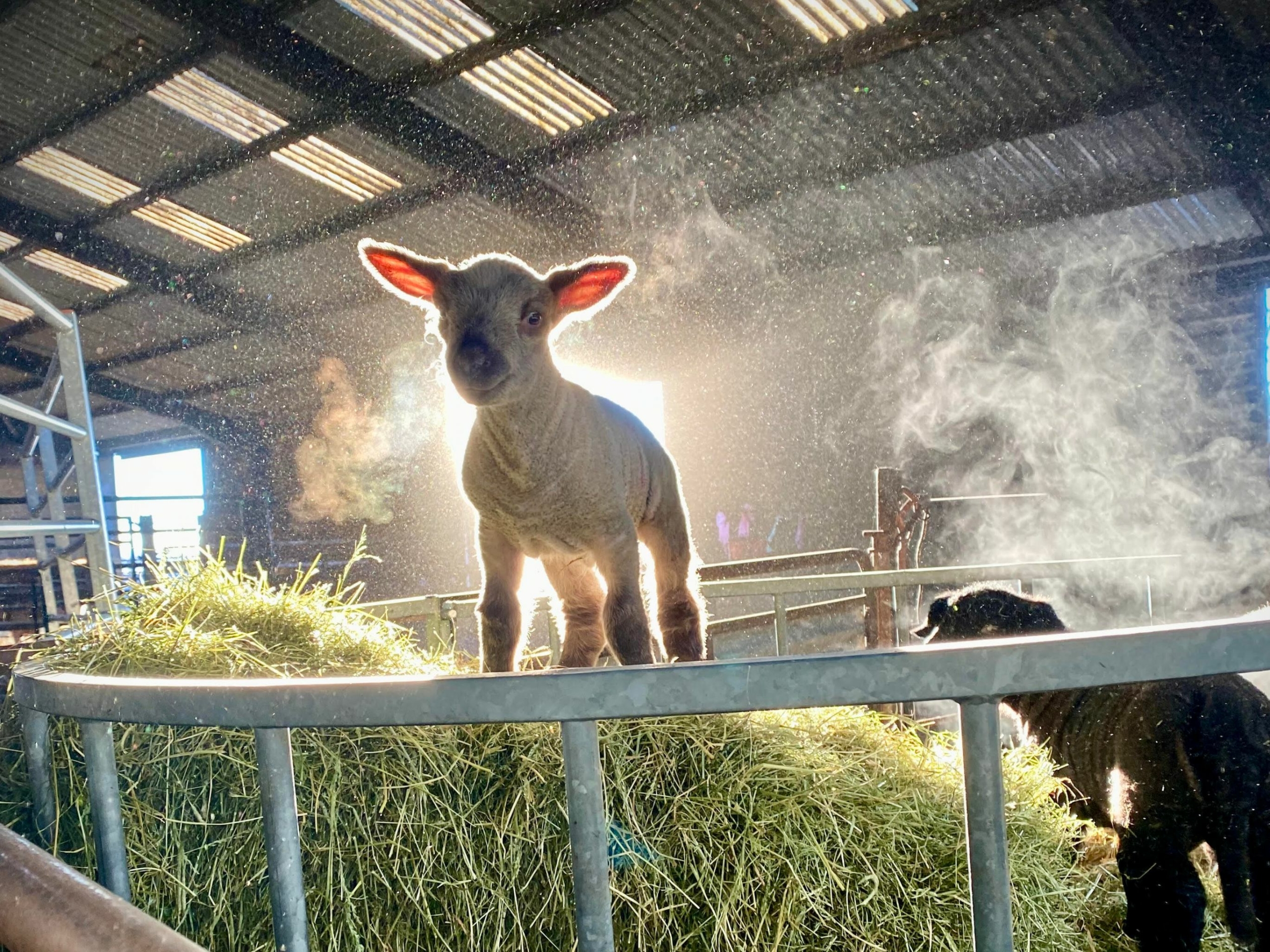Farm Newsletter December 2023
December has been a very busy month for us still wrapping up the last of the routine PDing and Johne’s blood testing. PD results have tended to be pretty good with the odd disappointment. This seems to also have been a “roll-over” year for TB testing meaning we’re busy fulfilling our responsibilities here.
The unseasonably mild spell of weather in the middle of the month posed a major risk for respiratory disease in housed calves, thankfully on most units vaccination seems to have done what we expect it to, but there were also a number of farms who suffered disease and even deaths. In these cases investigation is always worthwhile as it may be that a novel cause of pneumonia has developed in the herd such as mycoplasma, histophilus or coronavirus. If we identify these then we can put further measures in place to mitigate future effects. It may also be that we can identify other management issues such as short-comings in the housing that can be addressed.
We had a very succesful beef suckler meeting covering Neospora and fluke, with over 40 clients in attendance. We look forward to a further meeting in January to discuss nutrition in the suckler cow and Thrums Flock Health Club will catch up again too. Dates TBC so watch this space!
We will be closed for routine work on the 25th and 1st and operating a “Saturday service” on the 26th and 2nd, but of course there will be at least two of us on-call at all times for any emergencies.
With that in mind we’d like to wish you all a very peaceful and stress-free Christmas and many thanks for choosing to work with us in 2023 and we look forward to a healthy 2024.
As ever, please do make sure you forward this on to anyone in your team who is not yet receiving it and get them to sign up using the link: https://thrumsvet.us20.list-manage.com/subscribe?u=a600f655db6e63a5f999b23dc&id=3a7b7f1970
FOCUS ON FLUKE
Following on from a successful and informative evening at our meeting about fluke and neospora, we would like to highlight this to remind our clients about fluke testing options available to you.
If you are unsure whether or not you have fluke on your farm, blood sampling a proportion of your hoggs or calves for a fluke antibody test will inform whether these animals (and likely their mothers!) have been exposed to fluke during the past grazing season. This can help guide treatment plans and requirements this back end. Even if you know that you’ve had fluke in the past, this test can give up to date information.
Another option you may be more familiar with is to hand in some faecal samples for a fluke egg check. Whilst a positive egg test shows a clear requirement for treatment, a negative is a bit more of a grey area depending on the time of year, grazing history, treatment history etc as it can take up to 12 weeks once an animal is infected with fluke for it to start producing eggs in the dung.
A post-mortem exam can also provide really useful information about liver health and the presence of fluke or not. If you do loose stock unexpectedly, especially in the autumn and winter, a quick PM gives a lot of health information very cost-effectively.
The better news is that this information can be used to claim £250 from the animal welfare grants currently available from the Scottish Government. Up to £750 can be claimed this year and another £500 next year so don’t miss out! More information can be found here https://rb.gy/cfdpnn or please reach out to one of our vets who will be glad to help!
JOHNE’S DISEASE IN SHEEP
We often think of Johne’s disease as a problem primarily of cattle, and it is less well know that it can cause serious issues for many of our sheep flocks too. The signs in sheep are somewhat less obvious in cattle as scouring will only become a feature of the disease in the very late stages of disease. More prevalent is poorer body condition with the complications of impaired fertility, increased worm problems and increased lamb loss due to poor quality and quantity of milk and colostrum production.
For those with herds trying to control the disease in cattle, the sheep can also act as a reservoir of infection for cows, hampering efforts to get to level 1 or 2.
As many as 1 in 6 flocks in the UK may be affected with Johne’s disease. To identify the presence of disease within your flock we can take a samples from a selection of thinner sheep, or post-mortem samples from fallen stock.
If disease is identified there are several options we can take to control it. The tests available in sheep are less sensitive than in cattle, so test-and-cull can be problematic, but fortunately there is a very useful and cost-effective vaccine available in sheep. The vaccine doesn’t stop sheep becoming infected, but it does drastically reduce their chances of developing clinical disease because of it and shedding the bacteria which would then go on to infect other animals on the farm.
Please do feel free to discuss with any of us any thoughts or concerns you have around Johne’s disease in sheep.
RINGWORM IN CATTLE
During winter we usually expect to see a number of outbreaks of ringworm. Whilst the disease is usually self limiting and doesn’t typically cause production losses, it can be a real pest if it affects cattle that are due for sale through a ring.
Ringworm is caused by one or two species of fungi, that cause grey-ish raised, circular plaques on the skin. Disease often enters a herd through a carrier animal, but could also be brought in by “fomites” objects that have picked up the fungi elsewhere, such as your clothes, equipment or cattle halter etc. Please note also this is a zoonotic disease and your cattle are very capable of spreading it to you too – follow strict hygiene measures if working with cattle affected by ringworm.
Individual cases can be treated with anti-fungal shampoos what can be prescribed but often the best solution to a ringworm problem is vaccination. Vaccination works best as a preventative, but can also be used in the face of an outbreak. Immunity is usually established 3 weeks after completion of a vaccination course.
SUSTAINABLE FARMING GRANTS
A standing item for now but please remember to submit forms for sustainable farming grants ASAP, or indeed book the work if it is not already carried out. As a brief reminder about the availability of cash towards certain health interventions. There is up to £750 available this year and £500 next.
We have so far completed very few forms, though we have carried out eligible work on most units. You have until the end of February to complete applications but if we get flooded with 100s of forms to sign on the last day in February we can’t guarantee we’ll be able to complete them all! Please therefore do get forms into us ASAP once eligible work has been completed, to ensure your application goes smoothly! All the information you need can be found on the rural payments website on the link below or by speaking to one of us. https://www.ruralpayments.org/topics/all-schemes/preparing-for-sustainable-farming–psf-/




